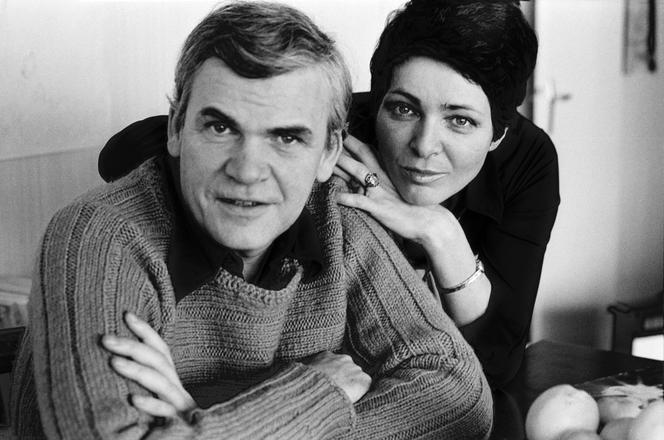


Vera Kundera, wife and great love of French-Czech writer Milan Kundera (1929-2023), died in Le Touquet (northeastern France) on Saturday, September 14. In this town, which was close to her heart – the couple owned an apartment overlooking the beach for many years, the same beach that features in Kundera's novel L'Identité (Identity, Gallimard, 1998) – she had spent a few days resting in a hotel away from Paris. It was in her room that she was found lifeless in the early hours of the morning. She was about to turn 89.
Knowing her, you'd be forgiven for thinking that she died the day before, on Friday the 13, such was her love affair with signs. Superstitious, she would laughingly track them down and interpret them, never really fooled, with her delightful accent and inimitable verve. She often recounted how, before leaving "la Tchéco," she had consulted a fortune-teller who had told her, "Little Scorpio, you won't die in Bohemia." These days, she said, more nostalgic than ever for her native land: "I'm afraid he's right."
She was a marvelous brunette, slender and always elegant. Born in Prague on October 24, 1935, Vera Hrabankova met Milan Kundera in 1967, during the joyous effervescence of the "Prague Spring." Slender, with very short hair, she looked like Jean Seberg and was six years younger than her (who had already been married very briefly). In her youth, she was hardly happy. When she was still a child, her mother abandoned her, her father and her sisters. At the age of 12, she watched one of them, Eva, die before her very eyes of meningitis.
Then her father was unjustly accused of wanting to move to Australia to escape Communist Czechoslovakia. "We didn't have much money then," she tells us in Milan Kundera. Ecrire Quelle Drôle d'Idée ("Milan Kundera: What a funny idea to write!" Gallimard, 2023). "We rented part of our apartment. A French woman who was renting from us claimed that my father wanted to escape illegally. She went to the police and they arrested my father." This remained an incurable trauma for her, and she could not stop talking about her beloved father who had taught her to read at the age of 6 and introduced her to poetry.
While he wasted away in prison, Vera was left to her own devices. At 16, penniless, she found a job in a brewery, like Tereza in L'Insoutenable Légèreté de l'Etre (The Unbearable Lightness of Being, Gallimard, 1984). She served beer at the station in Bruntal, Moravia. "Poetry kept me going." She memorized kilometers of verse "to keep from going mad." She developed a passion for Robert Desnos and Maxim Gorky, perfected her diction, and in 1958, entered and won a local poetry contest.
You have 60.89% of this article left to read. The rest is for subscribers only.
